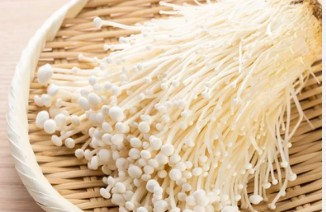The quality of the strain directly affects the yield and quality of the mushrooms produced. For general production, spore culture and tissue culture are the most common methods used for preparing the master strain. Tissue culture is simpler than spore culture, has a shorter culture time, is less prone to contamination, and has a higher survival rate.
Lifeasible offers enokitake tissue culture services. Our services can support you in selecting high-quality mushroom varieties. Our tissue culture service enables the propagation and expansion of enokitake strains to meet researchers' growing, research and commercial needs. Enokitake cultivated through our tissue culture service maintains purity, viability and genetic stability. In addition, our tissue cultures can support the study of enokitake growth characteristics, metabolites and gene expression.

Our Services
Lifeasible's enokitake tissue culture service provides a reference for research into industrial enoki mushroom cultivation. We use tissue culture methods to select the ideal parent culture medium for enokitake cultivation. Our tissue culture services include but are not limited to tne following:
- Strain Collection
- Tissue Isolation
For enokitake substrate isolation, we generally use the following three isolation methods:
|
Methods |
Introduction |
|---|
| Spore isolation method |
The sexual or asexual spores of the edible mushroom are used to germinate into mycelium that is cultured into strains |
| Tissue isolation culture method |
To obtain the parent species, cotyledon tissues are used for asexual reproduction. |
| In-base mycelium isolation culture method |
The substrate from which the golden mushroom is grown is used as isolation material to obtain the parental strain. |
- Strain Purification
- A test tube free of contaminated stray bacteria is selected and the enokitake mycelium is placed in a fresh test tube medium for purification and culture.
Enokitake Value
Enokitake is not only a valuable nutrition source but also has significant potential for pharmaceutical development. Its value consists of two main components, namely food value and medicinal value:
Enokitake is the fourth-largest edible mushroom in the world and is cultivated in captivity.
Enokitake contains functional components with unique effects, such as proteins with various pharmacological effects and polysaccharides with anti-cancer effects, which make enokitake even more valuable.
Enokitake contains a variety of functional proteins such as robo-someinactivating proteins (RIP) with anti-tumor, anti-viral, anti-worm, anti-fungal, and anti-human immunodeficiency virus (HIV) activities.
Contact Us
Lifeasible offers enokitake tissue culture services to companies of all sizes. As specific tissue culture methods may vary depending on the strain and the purpose of the study, we will tailor our experimental protocols to suit your purposes. If you are interested in learning more about Enokitake's tissue culture services, please contact us at your earliest convenience. We will provide you with a more detailed description of our services.
For research or industrial raw materials, not for personal medical use!



